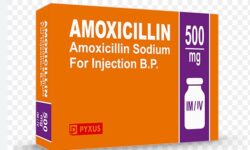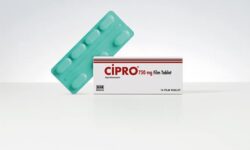Can I Drink Coffee After Taking Ciprofloxacin? ⏬
Are you someone who enjoys a good cup of coffee but Can I Drink Coffee After Taking Ciprofloxacin? If so, you may have wondered about the potential interaction between the two. Ciprofloxacin is a commonly prescribed antibiotic used to treat a variety of bacterial infections, but it can also have an impact on how your body absorbs certain substances, including caffeine found in coffee. In this blog post, we will delve into the details of ciprofloxacin, its interaction with coffee, and the potential risks and side effects of combining the two. We will also discuss the importance of consulting with a healthcare professional to ensure that you are making informed decisions about your medication and caffeine consumption. Additionally, we will explore alternative options for those who may need to limit their coffee intake while on ciprofloxacin. Whether you’re a coffee lover or simply curious about medication interactions, this post will provide valuable insights into the topic.Learn about the impact of Ciprofloxacin on absorption, interaction with coffee, side effects, and alternatives. Consult a healthcare professional for more information.
Understanding Ciprofloxacin
Ciprofloxacin is a commonly prescribed antibiotic that belongs to a class of medications called fluoroquinolones. It is used to treat a variety of bacterial infections such as urinary tract infections, respiratory infections, skin infections, and bone and joint infections.
Patients are often advised to take Ciprofloxacin with plenty of water and to avoid consuming dairy products or taking antacids, as these can interfere with the absorption of the medication. It is also important to note that Ciprofloxacin may interact with certain foods and beverages, including coffee.
When taking Ciprofloxacin, it is important to be mindful of what you eat and drink, as these can affect the way the medication is absorbed and metabolized in the body. In the case of coffee, it is advisable to avoid consuming it at the same time as taking Ciprofloxacin.
Additionally, it is crucial to follow the dosage instructions provided by your healthcare professional and to complete the full course of treatment, even if you start feeling better before the medication is finished.
Interaction With Coffee
Many people wonder whether they can drink coffee after taking Ciprofloxacin, a commonly prescribed antibiotic. The answer to this question depends on several factors, including how much coffee you typically drink, when you took the medication, and your individual tolerance to caffeine. Ciprofloxacin is known to interact with various substances, and coffee is no exception.
Some studies suggest that drinking coffee at the same time as taking Ciprofloxacin may reduce the absorption of the medication in the body. This is because coffee can interfere with the way the body metabolizes the drug, potentially leading to decreased effectiveness.
It is important to note that the interaction between Ciprofloxacin and coffee may not be the same for everyone. Factors such as age, weight, and overall health can all play a role in how the body processes the medication and caffeine. If you are unsure about whether it is safe for you to drink coffee while taking Ciprofloxacin, it is best to consult with your healthcare professional.
Alternatively, if you find that drinking coffee while taking Ciprofloxacin is not recommended for you, there are other alternatives to consider. For example, you may want to switch to decaffeinated coffee or try other beverages that do not have the same potential to interact with your medication.
Impact On Absorption
When taking Ciprofloxacin, it is important to consider its effects on the absorption of other substances in the body, including coffee. Ciprofloxacin is known to interact with various medications and substances, potentially affecting their absorption and effectiveness.
One study found that drinking coffee shortly before or after taking Ciprofloxacin can decrease the absorption of the medication in the body. This is due to the presence of compounds in coffee that can interfere with the absorption process of Ciprofloxacin, leading to reduced levels of the drug in the bloodstream.
For those who are prescribed Ciprofloxacin, it is advisable to avoid consuming coffee or other caffeinated beverages within a few hours of taking the medication. This can help minimize the impact on absorption and ensure that the medication is able to work as intended.
If you have any concerns about the potential interaction between Ciprofloxacin and coffee, it is important to consult with a healthcare professional. They can provide personalized advice based on your medical history and current medications, helping to ensure the safe and effective use of Ciprofloxacin.
Risk Of Side Effects
When taking Ciprofloxacin, it is important to be aware of the potential risk of side effects. This commonly prescribed antibiotic can cause a range of adverse reactions, including gastrointestinal upset, dizziness, and headaches. In some cases, more serious side effects such as tendonitis, tendon rupture, and nerve damage may occur. It is important to be cautious when using this medication and to be mindful of any unusual symptoms that may arise.
It is advisable to consult with a healthcare professional before taking Ciprofloxacin, especially if you have a history of allergic reactions to antibiotics or other medications. Additionally, it is important to disclose any pre-existing medical conditions or medications you are currently taking to determine if Ciprofloxacin is a safe option for you. Your healthcare provider can help assess the potential risk of side effects and provide guidance on the best course of action.
While the risk of side effects with Ciprofloxacin is present, it is essential to weigh the potential benefits of this medication against the potential risks. In many cases, the benefits of treating a bacterial infection with Ciprofloxacin may outweigh the risk of side effects. However, it is important to be vigilant and seek medical attention if you experience any concerning symptoms while taking this medication.
Ultimately, understanding the potential risk of side effects associated with Ciprofloxacin is crucial for anyone considering this medication. By staying informed and seeking guidance from a healthcare professional, you can make an informed decision about the use of Ciprofloxacin and minimize the risk of potential side effects.
Consulting A Healthcare Professional
When it comes to making decisions about your health, consulting a healthcare professional is always the best course of action. Whether you are wondering about the interaction between coffee and ciprofloxacin or are concerned about the potential impact on absorption, speaking with a doctor or pharmacist can provide valuable insight and guidance. Healthcare professionals have the knowledge and expertise to offer personalized advice based on your specific medical history and current treatment plan.
In addition to answering questions about drinking coffee after taking ciprofloxacin, a healthcare professional can also help you understand the risks of potential side effects and provide recommendations for alternatives to coffee. Whether it’s adjusting your medication schedule or exploring other beverage options, seeking guidance from a healthcare professional can help ensure that you are making informed decisions about your health.
Furthermore, consulting a healthcare professional can provide valuable insight into how ciprofloxacin may interact with other medications or medical conditions you may have. This comprehensive understanding of your health can help to minimize potential risks and optimize the effectiveness of your treatment plan.
Ultimately, while it may be tempting to seek information from online sources or anecdotal experiences, consulting a healthcare professional is crucial for obtaining accurate and reliable guidance that is tailored to your individual health needs.
Alternatives To Coffee
For many people, coffee is a staple in their daily routine, providing a much-needed energy boost to start the day. However, some individuals may need to find an alternative to coffee due to various reasons such as sensitivity to caffeine, health conditions, or medications. When looking for alternatives to coffee, there are several options to consider that can provide similar benefits without the reliance on caffeine.
One popular alternative to coffee is green tea. Green tea contains a moderate amount of caffeine, which can provide a gentle energy boost without the jittery side effects often associated with coffee. In addition, green tea is rich in antioxidants and offers numerous health benefits, making it a great choice for those looking to reduce their coffee intake.
Another popular choice is herbal teas, such as chamomile, peppermint, or ginger tea. These caffeine-free options can help to relax the body and mind while still providing a comforting and flavorful beverage to enjoy throughout the day. Herbal teas also come in a variety of flavors, allowing individuals to find a taste that suits their preferences.
For individuals seeking a warm and comforting beverage without caffeine, hot cocoa or decaffeinated coffee can be an excellent choice. Decaffeinated coffee offers a similar taste to regular coffee without the stimulating effects of caffeine, allowing individuals to still enjoy the ritual of having a warm beverage in the morning or throughout the day.
Frequently Asked Questions
What is Ciprofloxacin?
Ciprofloxacin is an antibiotic used to treat a variety of bacterial infections.
Can I drink coffee while taking Ciprofloxacin?
It is generally recommended to avoid drinking coffee while taking Ciprofloxacin, as it may interact with the medication.
How does coffee impact the absorption of Ciprofloxacin?
Coffee can potentially reduce the absorption of Ciprofloxacin, leading to decreased effectiveness of the medication.
What are the risks of drinking coffee while on Ciprofloxacin?
Drinking coffee while on Ciprofloxacin may increase the risk of experiencing certain side effects, such as nervousness and rapid heart rate.
Should I consult a healthcare professional before consuming coffee with Ciprofloxacin?
It is important to consult a healthcare professional before consuming coffee while taking Ciprofloxacin, as they can provide personalized advice based on your specific health condition.
Are there any alternatives to drinking coffee while on Ciprofloxacin?
If you are looking for alternative beverages, consider drinking water, herbal tea, or other caffeine-free options to avoid potential interactions with Ciprofloxacin.



